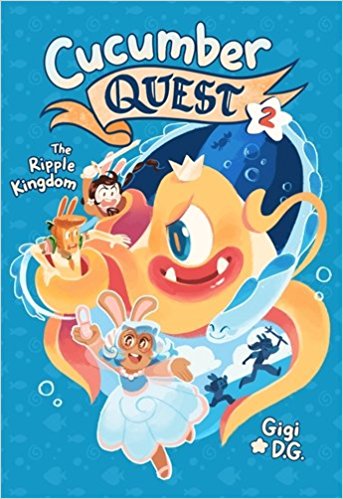
Gigi’s best known work, the webcomic Cucumber Quest, features an incredibly reluctant hero who’s forced to answer a call to adventure in order to save the many kingdoms of his world from a dark being that threatens to plunge the world into shadow forever. And while that premise might sound similar to countless stories you’ve heard before, I promise that you’ve never read a fantasy adventure like Cucumber Quest. Beyond its excellent comedic timing and loveable characters, Gigi’s writing actively subverts the story beats and genre tropes that are typically connected with this type of story, resulting in a work that you can’t help but binge like candy thanks to the way it leaves you on the edge of your seat, laughing and wondering about what could possibly happen next.
Recently, First Second picked up Cucumber Quest for physical publication. In anticipation of Cucumber Quest vol 2: The Ripple Kingdom, which hits stores today, I sat down to talk to Gigi about her creative process and how it feels to see Cucumber Quest in print after seven years of crafting the story.
Alex Lu: Gigi, you’ve been working on Cucumber Quest for quite some time now! Almost seven years, I think? I know the series originated as a webcomic and has had multiple Kickstarters for physical editions in the past, but how did the series find a home at First Second?
Gigi D.G.: My current agent approached me after coming across my work on Twitter in early 2016. After pitching around to publishers, we decided First Second was the best home for Cucumber Quest a few months later.
Lu: In preparing some of these earlier volumes for re-release at First Second, how does it feel to look back at this work? Have your perceptions of what the story is changed in some way as time has gone by?
D.G.: Certainly. The earliest scripts for the comic were written almost a decade ago, and I like to think I’ve evolved as a writer since then. As for how it feels to look back at the earliest pages… I think “embarrassing” is the best word. But they’re evidence of my growth, so I can’t feel too bad about them.
Lu: While reading the first two volumes of Cucumber Quest, I noticed how quickly the scope of the story kept expanding. When you first started working on the series digitally, did you intend for the story to be as massive as it is or to have worked on the series for so long?
D.G.: Sort of. I had always planned for Cucumber Quest to become more than its initial premise. I hoped to create a world and characters that seemed simple and bright, but had more going on if you looked past the surface. It was always a big undertaking, so I expected to work on it for a long time, but sometimes I’ll think, “Wait, I’ve been making this for 7 years? And I’m still not done?!”
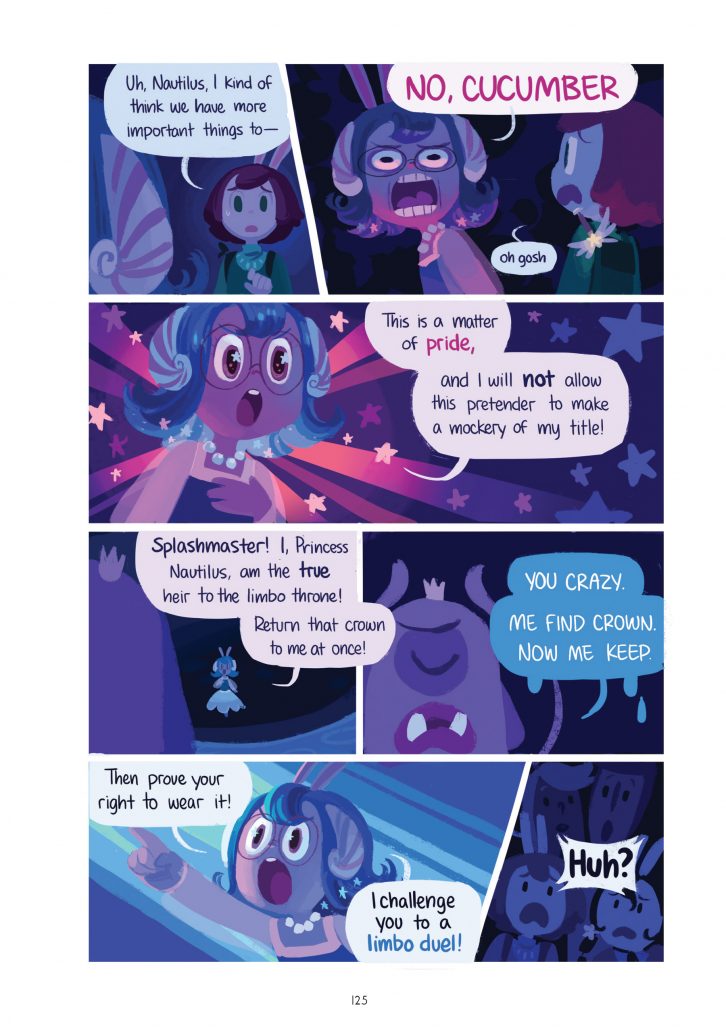
D.G.: The general structure of the overall story is planned, but the details tend to be more spontaneous. My destination is set, but not the course…or something like that. The limbo competition is a good example; it was something I came up with halfway into writing that chapter’s script, and only after I had given Splashmaster a “Limbo King” crown as (what I thought would be) a throwaway gag.
Lu: Visually, how do you take a page of Cucumber Quest from conception to completion?
D.G.: First, I draw rough thumbnails of each page. Next, I’ll blow up the thumbnail to full size and sketch over that. This is usually when I letter the dialogue, so I can make sure there’s enough space for it on the page. After that, I block in colors and paint until it looks finished.
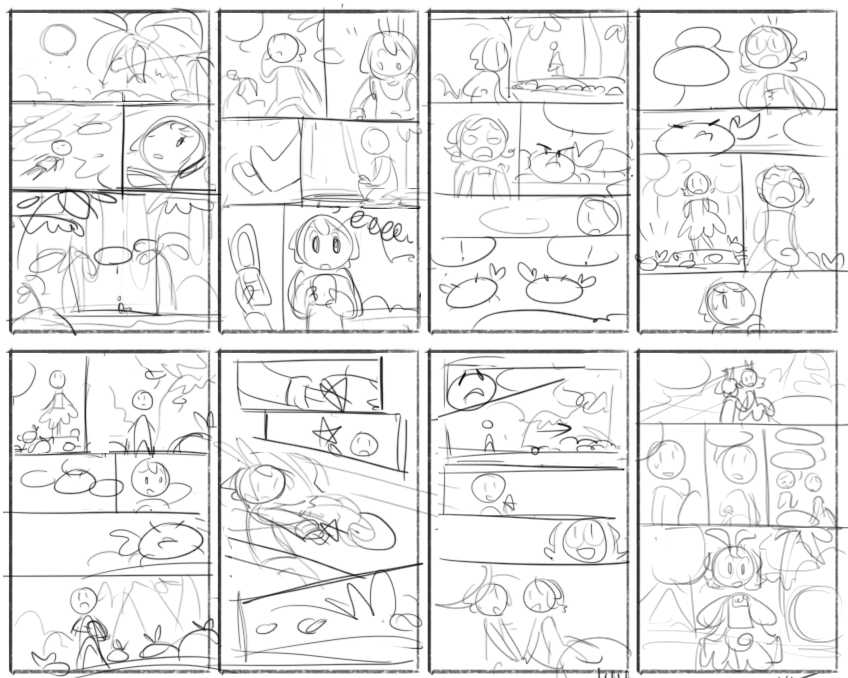
Lu: In particular, how do you go about concepting and laying out a humorous beat to ensure that it lands? I can’t tell you how many times I’ve laughed because Cucumber Quest holds an emotional beat for one extra panel or because I see someone with the most absurd expression on their face.
D.G.: I don’t have much of a formula for that. I guess I’ve always relied on intuition when it comes to comedic timing, so I’m happy to hear that it works.
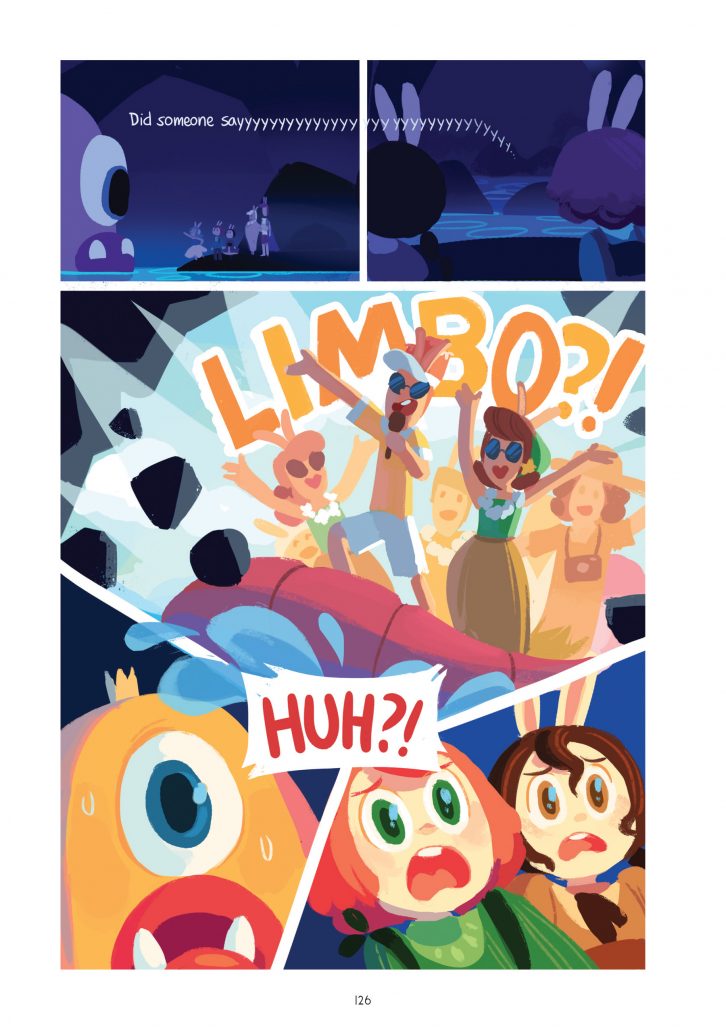
D.G.: Any stylistic growth is just a natural result of working at it for so many years. I make new pages almost every day, and occasionally I’ll look back and realize I don’t like the old pages as much. By the time Cucumber Quest is completed, I hope I’ll look back on the work I’m doing now and feel the same way.
Lu: Throughout the second volume of Cucumber Quest, it becomes more and more clear that one of the major themes of this series is questioning tradition and asking whether it’s possible to break these seemingly unbreakable cycles that leave countless lives hanging in the balance. What makes it important to you to subvert this trope of your typical fantasy hero’s journey?
D.G.: I don’t think Cucumber Quest is subversive in any revolutionary way; I’d just call it a story about people who are bad at filling the roles they’ve been assigned by others. Sometimes in funny ways, sometimes in difficult ways. Some of the character writing in Cucumber Quest comes from a personal place, and if my readers find it uplifting, I’m more than satisfied with it.
Lu: A big part of working in webcomics in particular, I think, is that the barrier between creators and fans is by nature, quite thin. How have the readers of Cucumber Quest impacted the direction of the series, in tone, plot, or otherwise, if at all?
D.G.: I value the encouragement I get from my readers, but I wouldn’t say fan interaction has influenced the direction of Cucumber Quest much.
Lu: I really enjoyed reading The Idle Divination, your experimental tweet story. And what strikes me about both this and Cucumber Quest’s inclination to subvert traditional hero’s journey tropes is an artistic interest in pushing formal boundaries. I know that Cucumber Quest is still releasing digitally first, but now that these physical editions are coming out on a regular basis, do you have some desire to try and play with how the story will read when it is printed, perhaps through more complex layouts or double-page spreads, or does the webcomic side of things prevent that kind of experimentation?
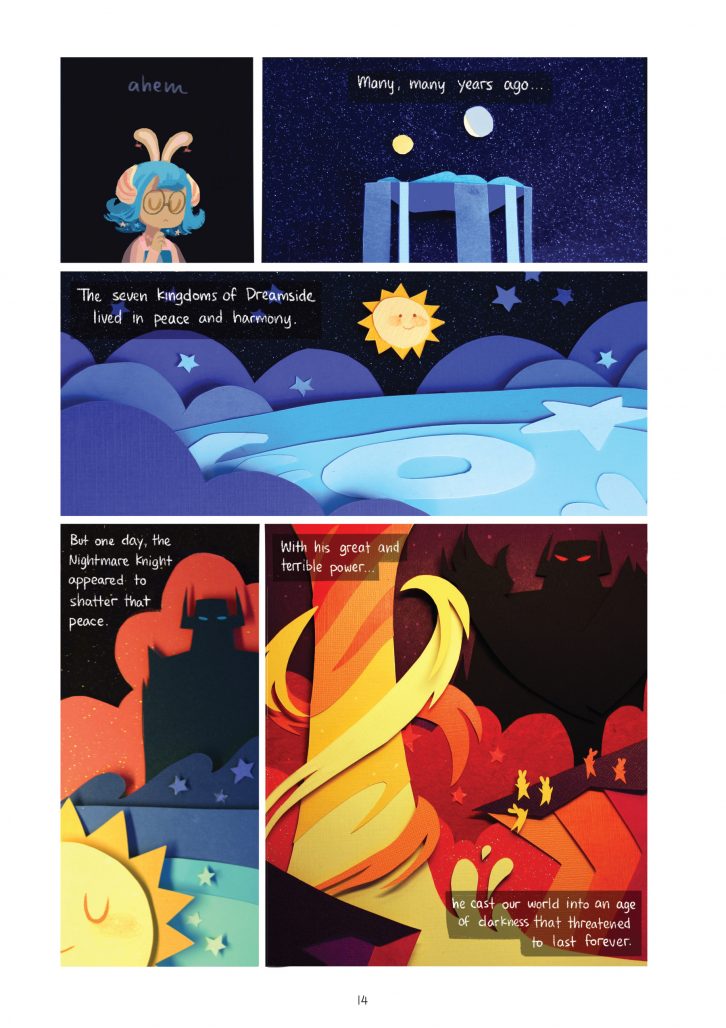
Lu: It’s evident to anyone who reads Cucumber Quest that there’s a lot of love and heart poured into the story. And that sense of warmth, I think, is key to what makes it so great. What has kept you motivated and excited to work on the series for all these years?
D.G.: Working on such a long comic can be grueling sometimes, but I’m fortunate to have supportive fans who are excited about it. Seeing people react to a page that’s particularly funny or dramatic makes whatever frustrations I encountered on the way seem worth it. Seven years into Cucumber Quest, I still have a lot of surprises in store for the last few chapters, and I’m looking forward to being able to share them with everyone.
Cucumber Quest vol. 2: The Ripple Kingdom is out now.


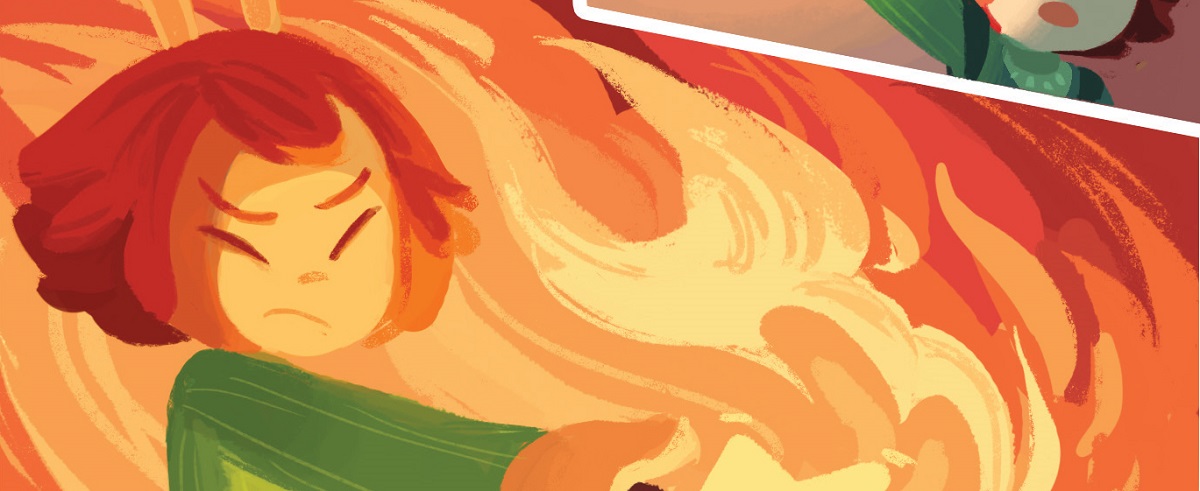
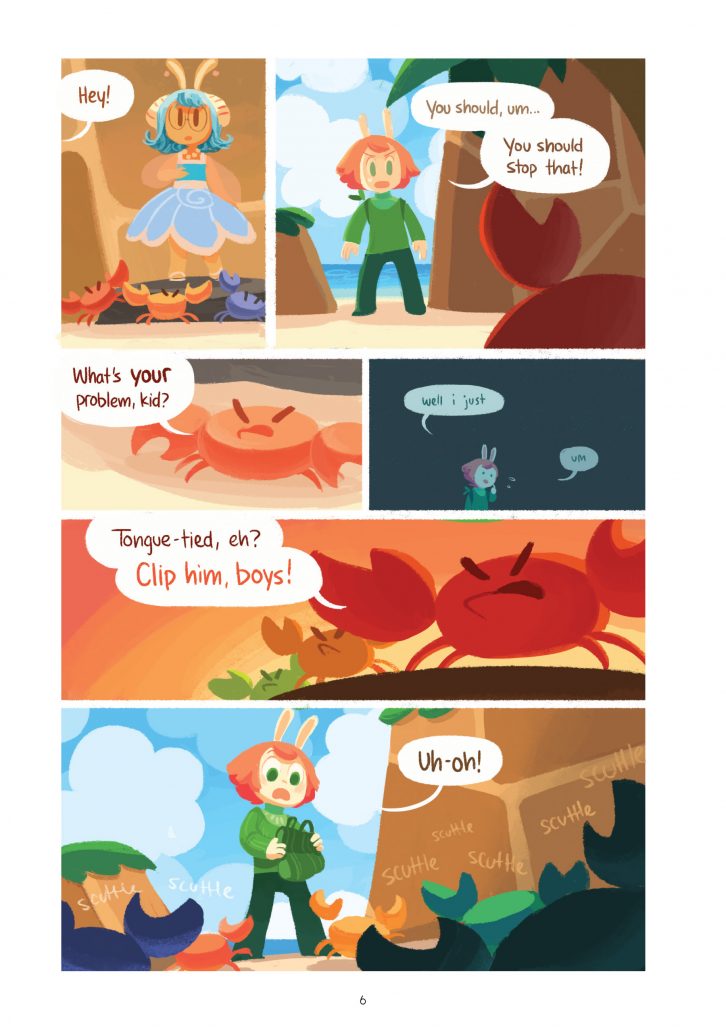
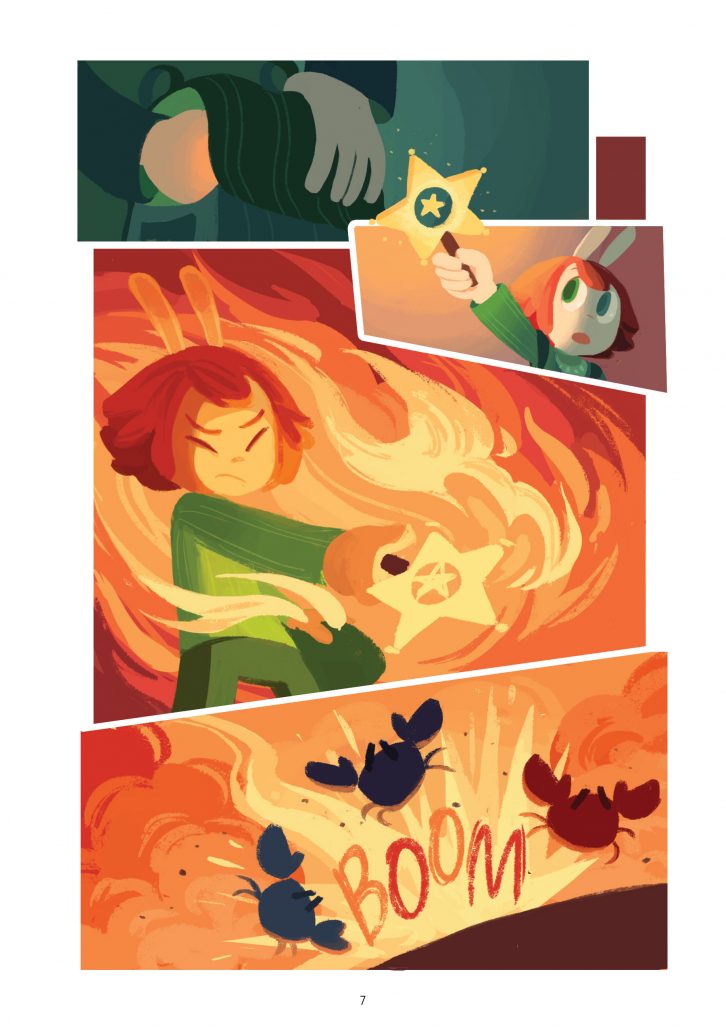

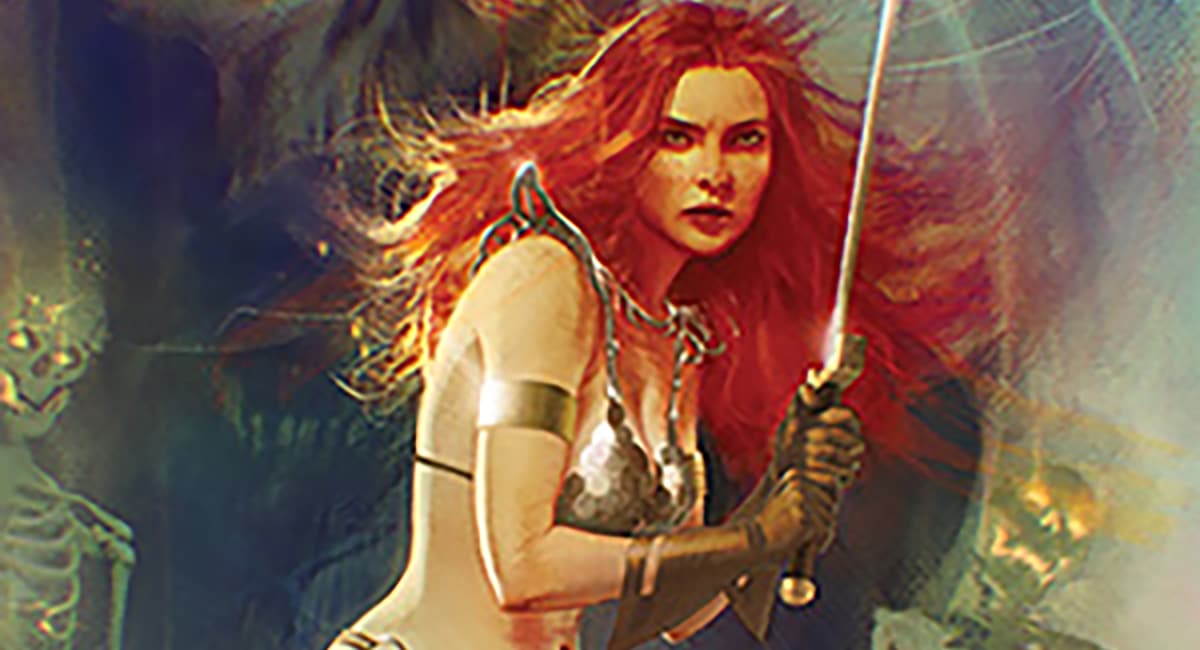
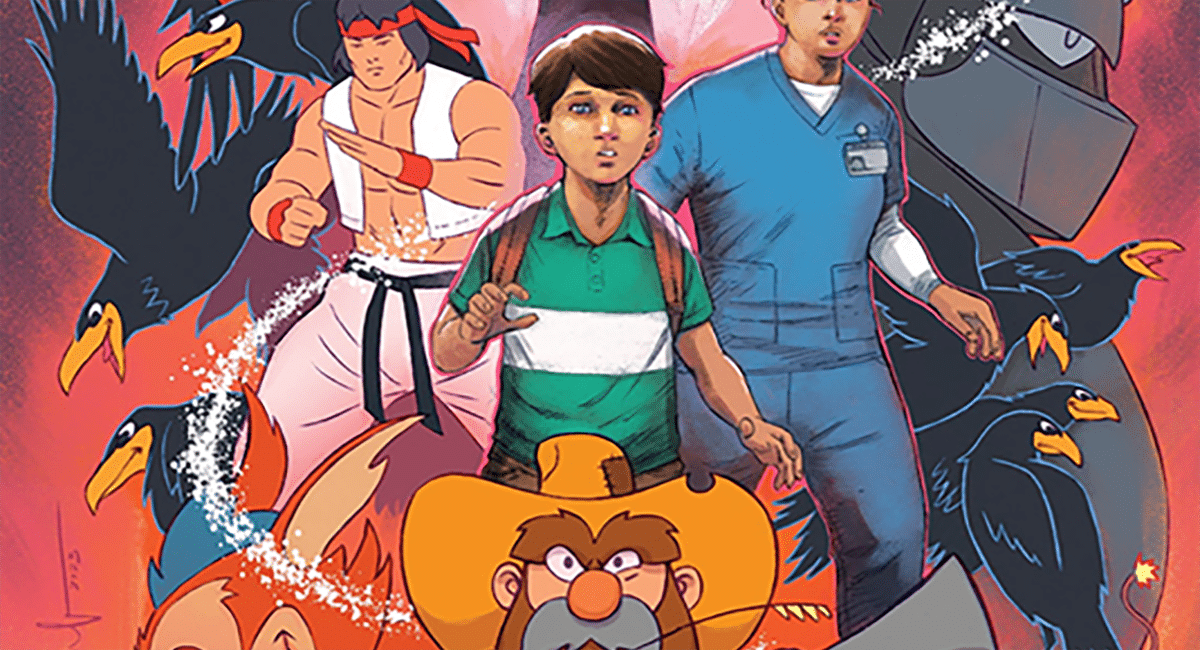



I am legit shocked to see Cucumber Quest on the Beat. I remember the Beat throwing shade at Gigi DG when the first Kickstarter was successful.
This has been one of my favorite comics for years and I’m so happy to see her success continue to grow.
Comments are closed.